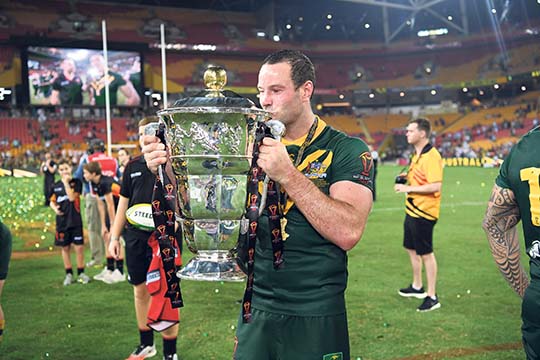 David Hinchliffe, the former secretary of the All Party Parliamentary Rugby League Group, suggests that we should demonstrate some understanding of why the Australians and New Zealanders have withdrawn from this year's Rugby League World Cup
International Rugby League is the pinnacle of our great game and our World Cup represents the sport’s u
David Hinchliffe, the former secretary of the All Party Parliamentary Rugby League Group, suggests that we should demonstrate some understanding of why the Australians and New Zealanders have withdrawn from this year's Rugby League World Cup
International Rugby League is the pinnacle of our great game and our World Cup represents the sport’s u Opinion: Let’s not belittle the Kangaroos and Kiwis
 David Hinchliffe, the former secretary of the All Party Parliamentary Rugby League Group, suggests that we should demonstrate some understanding of why the Australians and New Zealanders have withdrawn from this year's Rugby League World Cup
International Rugby League is the pinnacle of our great game and our World Cup represents the sport’s u
David Hinchliffe, the former secretary of the All Party Parliamentary Rugby League Group, suggests that we should demonstrate some understanding of why the Australians and New Zealanders have withdrawn from this year's Rugby League World Cup
International Rugby League is the pinnacle of our great game and our World Cup represents the sport’s u 